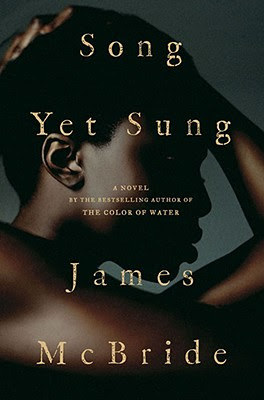A Writing Tip from Highlights and Calkins Creek Books Editor Carolyn Yoder
When kids are asked if they like history—or social studies—their answers tend to be a big flat "No." But if kids hear and understand that history involves them—their stories, their parents' stories, their ancestors' stories, the stories about where they live, the stories about what they do—history...becomes personal, and more importantly, relevant.
I strongly encourage authors to investigate their lives in order to discover these "little" (or "big") stories of history. I have met a mother from the Midwest whose mother sewed blankets in the Caribbean during World War II, a ninety-year-old writer who captured the story of her great-great-grandfather moving west to Indiana, and a young girl who discovered dinosaur bones in her backyard.
Think about writing your stories, the stories of your family or the stories about where you live. Capture the human element and the historical element. Together they will help to make your stories universal.
Carolyn P. Yoder is the senior editor of history and world cultures for Highlights and has written numerous articles on research and writing history for children. She spent a decade serving as the award-winning editor in chief of Cobblestone: The History Magazine for Young People; Calliope; Faces; and Odyssey, which led to her position as assistant publisher of Cobblestone Publishing, Inc., overseeing development of its book division.
Carolyn is currently editor of Calkins Creek Books—the history and historical fiction imprint of Boyds Mills Press, publisher of her book George Washington: The Writer and her most recent work, John Adams: The Writer, released in October 2007. She also reviews juvenile history books for the Civil War Book Review and has been a writer and editor for the New Jersey Historical Society.
* * *
A Writing Tip from Philomel Editor Patricia Lee Gauch
Fiction, nonfiction, picture books, easy readers . . . the great books come alive. They breathe. They lament. They stand up and cheer. And, whether I had intended or not, they pull me as editor, as reader, into their living world, allowing me to breathe and lament and stand up with them. The heart of a really good book beats.
Okay then, you might ask, what makes a good book's heart beat? There are more answers to the question than anyone can give in one morning, but I believe you give yourself a leg up in discovering the heartbeat, if as a writer you dare to look at life on a slant.
Readers do not want what is straightforward, understandable, four square, typical, sturdy, easy, predictable. No, I believe character and plot and setting and language—on a slant—is what readers thirst for. They are intrigued with what is odd, aberrant, offbeat, strange—for goodness' sake. And praise be!
Patricia Lee Gauch is vice president and editor at large of Philomel Books as well as a respected author in her own right. She holds a doctorate in English literature, and has taught children's literature on the college level and reviewed for The New York Times. Patti has edited three Caldecott books, including Owl Moon by Jane Yolen and John Schoenherr, and So You Want to Be President? by Judith St. George and David Small. She has worked with many well-known authors, including Jane Yolen, Andrew Clements, and Brian Jacques.
* * *
A Writing Tip from Award-Winning Poet and Author Eileen Spinelli
Here's a beautiful quote that I love. Natalie Goldberg said, "If you love the work, it will love you back." How can you love the work if you're already a mile down the road worrying about whether it's going to be published? The publication will take care of itself. I hate to see writers just cringing and skipping ahead, and worrying about publication. I think it interferes with what you do. It makes you afraid to take risks, for one thing, because you are too afraid. "Is the publisher going to want this?" or "Is the editor going to like this?"�that's the adult in you.
Kids aren't afraid of risks. It's a wonder we're all here alive for all the risks we took when we were younger. You'll be more able to do what you need to do and take risks if you kind of let the other parts go. Let the marketing go. Make the marketing the lower rung on the ladder rather than the top rung. The top rung needs to be the writing and the joy that you derive from it, even if you never get published. Honest.
Eileen Spinelli is an award-winning author and poet whose work includes the 1991 Christopher Award winner Somebody Loves You, Mr. Hatch. Eileen has published more than thirty books for children. Some of her recent titles include Bathtime, Rise the Moon, Moe McTooth, Three Pebbles and a Song, The Perfect Thanksgiving, and City Angel.
* * *
These tips come from workshops given by these authors and editors at the Highlights Foundation Writers Workshop at Chautauqua. If you'd like to learn from them in person, join them for the 2008 workshop. Find out more at
www.highlightsfoundation.org.
The Highlights Foundation
814 Court Street
Honesdale, PA 18431
Phone: (570) 253-1192
E-mail:
[email protected]



Thanks for the links, Kelly! Have a good weekend.
Thanks from me too--I don't have time to read them now, but I'll be back!
Very useful, thank you Kelly!
Thanks for the links! I really enjoyed reading those articles. Why doesn't any American newspaper publish thoughtful articles about children's literature like the Guardian so regularly does??